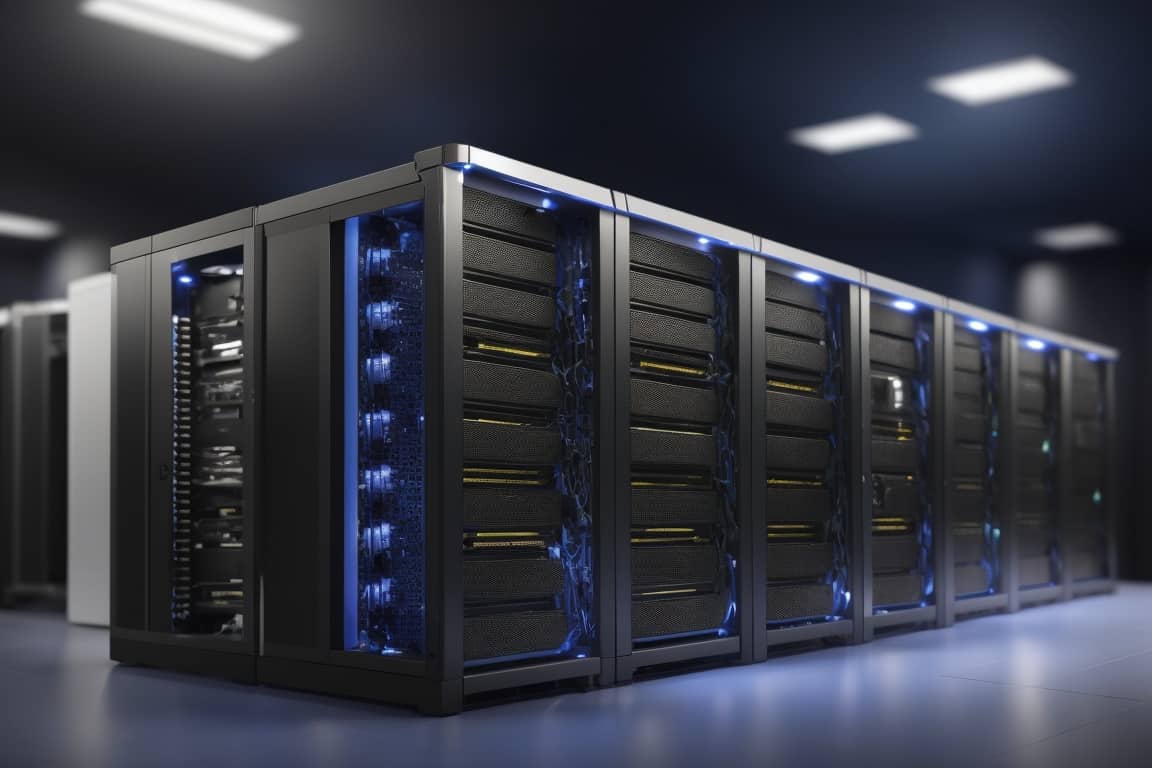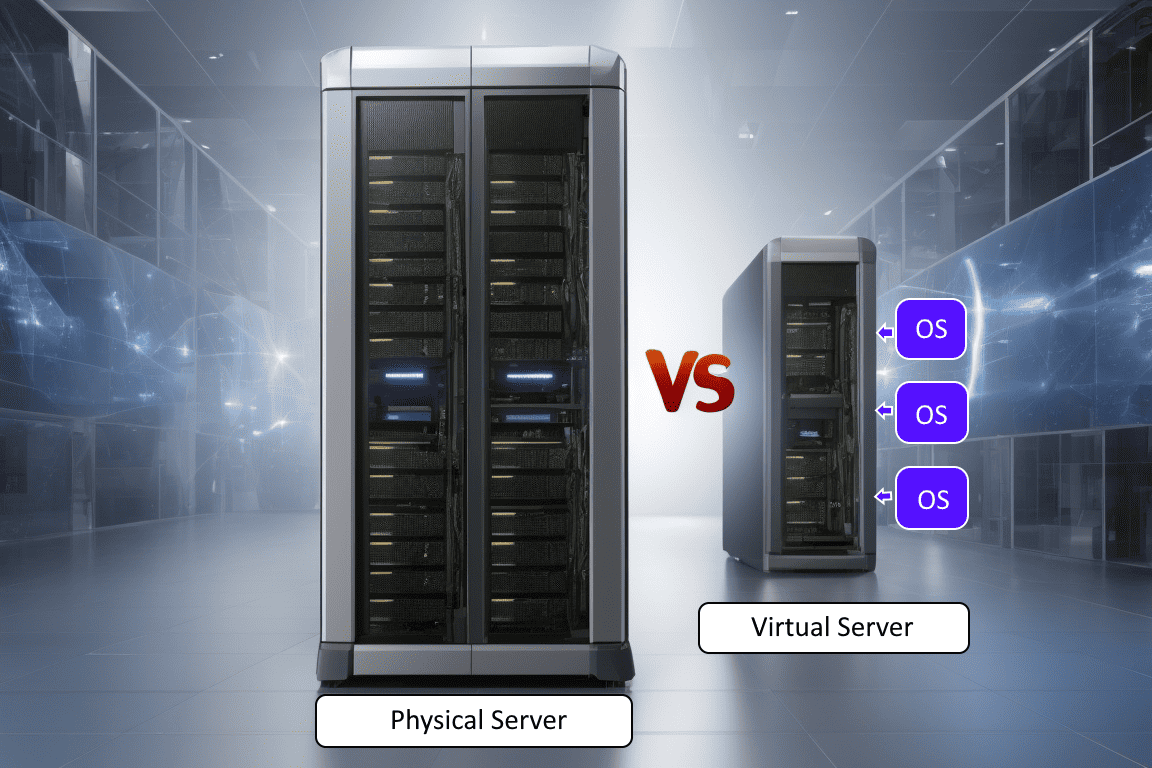In this comprehensive review, we’ll delve into the suitability of a dedicated server for specific tasks, its advantages over VPS, and guidelines for selection.

Renting a Dedicated Server
The service termed a “physical dedicated server” essentially means renting tangible hardware in a data processing center managed by the provider. The hosting company ensures the server is equipped with all essential infrastructure, such as communication channels and power, for its optimal operation. Remote server management typically involves tools like KVM-console (or KVM-over-IP) and/or IPMI-interface. Hosting or data center professionals handle any manual tasks on the server, like disk replacements.
Key Benefits of Renting a Dedicated Server
Exclusive Hardware
The primary advantage of dedicated server hosting is having your own exclusive hardware. This is beneficial mainly because:
- You don’t have to share your server resources with other websites.
- You get root access to your server, allowing customization as per your requirements.
Superior Performance

Dedicated servers outperform other hosting alternatives. Your site is less likely to crash, can handle peak-hour traffic efficiently, and most importantly, loads much faster compared to virtual hosting.
Enhanced Security

Imagine a scenario where your site experiences high traffic with thousands purchasing your product/service. Suddenly, another site on your shared hosting gets a DDoS attack, slowing down your site. This could lead to significant losses. With dedicated hosting, you’re insulated from such risks and can fine-tune security settings for better protection. It is also recommended to choose dedicated servers with DDoS protection if you need maximum stability of work.
Reliability
In 2023, server reliability is paramount. If your site is down for any reason, customers might switch to competitors. Dedicated servers offer exceptional reliability, ensuring your site is up and running smoothly, even during peak traffic.
Flexibility
Dedicated server hosting simplifies your site’s expansion. If you experience a sudden surge in users, you can easily upgrade your hardware to handle the increased traffic.
Root Access
With a dedicated server, you get root access, allowing you to install applications, enhance security measures, manage users, and even create backups.
Cost-Effectiveness

Price is another significant advantage. If you need a dedicated server but lack the resources to purchase and manage one, you can simply rent it. The hosting provider takes care of all maintenance, letting you focus on your core business.
When Should You Consider Renting a Dedicated Server?
- High-Traffic Sites: Virtual hosting plans often limit bandwidth and traffic. If your site has high traffic or is expected to grow, dedicated hosting might be a better fit.
- Handling Sensitive Information: The more secure your data needs to be, the more you should lean towards dedicated hosting. With virtual hosting, you’re unaware of who shares your server, potentially exposing you to malware attacks or malicious sites.
- SEO Importance: If a site sharing your server is flagged or spammy, it could negatively impact your site’s search ranking. Dedicated servers eliminate this risk.
Physical vs Virtual Server: Which is Better?
The choice between a physical and virtual server is highly personal, influenced by available resources and data volume. Large enterprises might need physical servers, while SMEs might find virtual servers more suitable due to their ease of use and scalability.

The computational power of a server directly impacts its rental cost. It’s essential to choose a server that aligns with your needs to avoid overpaying or underestimating future requirements.
Tips for Choosing a Dedicated Server Configuration
Regardless of the server type, it’s crucial to consider technical parameters and the location of the data centers hosting your potential resources. Also, pay attention to the type of disk subsystem (HDD, SSD) and its performance (IOPS).
Conclusion
In summary, a dedicated physical server is ideal for tasks demanding high CPU power, network, and disk subsystems. However, it’s not easily scalable. Virtual servers, based on cloud provider virtualization, offer flexibility in scaling and access rights but might be less reliable than dedicated servers. When choosing either, prioritize technical parameters and the infrastructure’s reliability.
I hope this tutorial helped you to know about the Dedicated Server: Advantages and Comparision with VPS. If you want to say anything, let us know through the comment sections. If you like this article, please share it and follow WhatVwant on Facebook, Twitter, and YouTube for more Technical tips.
- RELATED – Infatica Rotating residential proxies – Quick review
- Data Room Services with Secured Segmented Access
Dedicated Server: Advantages and Comparision with VPS – FAQs
What is a dedicated server?
A Dedicated server is a server that is hosted by a company and only allows one client company to access the server.
What are the 5 types of dedicated servers?
There are seven most common types of dedicated servers such as managed, unmanaged, standard, enterprise, email servers, websites, and gaming dedicated servers.
Why dedicated servers?
Overall, dedicated servers provide superior performance, reliability, control, security, and customer service compared to other hosting solutions.
Who uses dedicated servers?
Companies often use dedicated servers as their primary web servers and install the physical hardware in a data center. Because dedicated servers can serve as web hosts, a specific host may assign the physical hardware and internet connection appropriate to your account type.
What are the basics of a server?
A server is a computer program or device that provides a service to another computer program and its user, also known as the client. In a data center, the physical computer that a server program runs on is also frequently referred to as a server.
